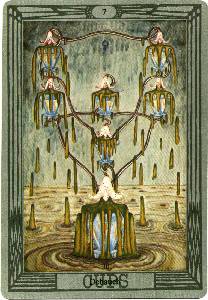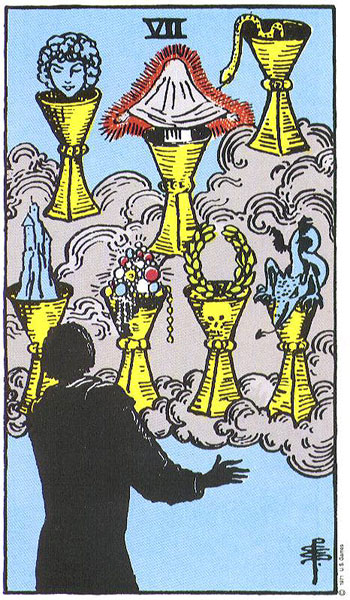A friend once taught me that “debauch” comes from a French verb meaning “to turn away from one’s duty.” The word now has loosened its connotations to include a general sense of licentiousness, hedonism, or indulgence in activities of vice. This evolution of meaning has a logic, in that these are the same activities likely to turn a person away from a sense of duty—imagine choosing between a night of cold discipline and one of abandon and indulgence, whatever kind of indulgence tempts one the most.

While we have culturally retained the pleasures and release of debauchery, we’ve lost a reverence for duty and discipline. The virtue persists in smaller pockets of culture, in the military, among martial arts, among religious communities, but in a broader sense, “duty” lacks a solid core to give it weight and heft. Duty to family erodes through increasing consciousness of the dysfunctionality bred by too much credence to one’s parents and familial culture. Duty to one’s job is increasingly more of a liability than a value, as excessive loyalty can prevent the worker from opportunities that would be more profitable, and most companies are more than ready to dispense of an employee if they have lost their value, no matter how loyal the person has been.
As with any opposition, duty’s erosion in turn diminishes debauchery. A life of pure indulgence in every transient craving and whim is no life at all. It may feel wonderful, this constant escape from the world drudgery, mundanity, and pain, but that world is the foundation of a meaningful life.  Even subtle fantasies can debauch us, pulling attention away from the uncomfortable work of the moment. Fantasies of all the wealth we should be amassing, the fame and glory we want and fear to have, the inflated sense of purpose that says the simple presence of a moment is not enough. We look to heroes, saints, or other legends and imagine that they never had to deal with the kinds of insults and daily mess that we face. They never had a boss that criticized them, or a child who struggles to pay attention, or a lover who confronts them with their faults. We imagine that we’re destined for something more, which means this moment is not enough. This relationship, this chore, this task somehow fails to feel filled with the sense of ebullience and expansiveness that we long to feel, so we abandon the task and go into fantasy or some other debauchery. We can be debauched by memories of the past—successes or failures that take us away from making an earnest effort in the present.
Even subtle fantasies can debauch us, pulling attention away from the uncomfortable work of the moment. Fantasies of all the wealth we should be amassing, the fame and glory we want and fear to have, the inflated sense of purpose that says the simple presence of a moment is not enough. We look to heroes, saints, or other legends and imagine that they never had to deal with the kinds of insults and daily mess that we face. They never had a boss that criticized them, or a child who struggles to pay attention, or a lover who confronts them with their faults. We imagine that we’re destined for something more, which means this moment is not enough. This relationship, this chore, this task somehow fails to feel filled with the sense of ebullience and expansiveness that we long to feel, so we abandon the task and go into fantasy or some other debauchery. We can be debauched by memories of the past—successes or failures that take us away from making an earnest effort in the present.
So what is duty now? Duty seems to need deference to something outside of the transient wants and cravings of the ego—to a higher power, a human organization or movement, or even simply a virtue like Justice. Duty is that commitment and call to service, even when service is unpleasant. As a Boy Scout, I vowed to “do my duty to God and my country.” Now I interpret that vow more broadly. My duty is to vote, sometimes to take part more actively in the political process by canvassing or making calls, even when the cynical part of me wants to consider the project worthless and wallow in a comfortable despair. My duty is to wake up daily and meditate, then go and attempt to live according to my values, even when something within me resists. My duty is to go to work, pay my bills, and keep my house clean, even if I don’t feel like it, because all of those things are in service to maintaining my household.
Duty, I think, must be anchored in the Self to be fluid, adaptable, and filled with life. If one of my duties no longer serves me, then simply sticking to those commitments by rote becomes brittle and life-sapping. If this job no longer serves my larger life’s purpose, then duty means looking beyond to find something that will. If this relationship feels empty, then duty means looking honestly at myself to see what in me has retreated from intimacy, and why, and to discern whether I can return. When I find myself thinking, “If only I can make it to [this point], then things will be okay,” a part of me has turned away from an uncomfortable truth about my duty. That too is a kind of debauchery, this deflation of self in favor of a harsh, punitive devotion to benchmarks and accomplishments.
What fantasies pull us away from the life that is before us? What longing stops the flow of joy that is available? What painful constriction makes withdrawal from duty the more desirable choice?
What do you serve? What service are you offering today? How can you bring yourself back into this service, no matter what is happening?




